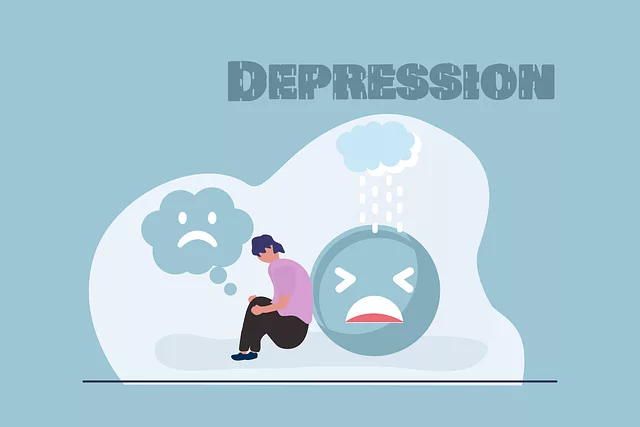Kaiser Permanente Broomfield's enhanced mental health services focus on resilience-building through evidence-based exercises, community outreach, and crisis support. Their holistic approach includes mindfulness meditation, positive thinking techniques, and educational programs to empower individuals with emotional well-being tools. This strategy, combined with comprehensive coverage, has led to improved mental health outcomes in Broomfield, fostering a resilient community that prioritizes emotional coping skills and social connections.
“Resilience is a powerful tool in navigating life’s challenges, especially for those seeking improved mental wellbeing. This article explores the implementation of RFM (Resilience, Flexibility, and Mastery) exercises, focusing on their impact on mental health support. We examine Kaiser Permanente’s innovative approach to comprehensive mental healthcare and its success in communities like Broomfield. Discover practical strategies for integrating these exercises into daily routines, fostering sustainable mental well-being, and learn from a case study highlighting the transformative power of RFM in enhancing community mental health.”
- Understanding RFM and Its Impact on Mental Health Support
- Kaiser Permanente's Approach to Comprehensive Mental Healthcare
- Integrating Resilience-Building Exercises into Daily Routines
- The Broomfield Community: A Case Study in Enhancing Mental Wellbeing
- Strategies for Sustainable Implementation and Continuous Improvement
Understanding RFM and Its Impact on Mental Health Support

At Kaiser Permanente Broomfield, recognizing the profound impact of mental health on overall well-being, we’ve turned our focus to Resiliente, Flexibility, and Mental (RFM) resilience building exercises. These evidence-based practices are designed to empower individuals with coping strategies that foster positive thinking and emotional regulation in the face of life’s challenges. By integrating RFM into our mental health coverage, we aim to provide comprehensive support that extends beyond traditional therapy. Through community outreach program implementation and crisis intervention guidance, we’re creating a network of support where everyone can access valuable tools for building resilience and navigating life’s complexities with greater ease.
Kaiser Permanente's Approach to Comprehensive Mental Healthcare

Kaiser Permanente, a renowned healthcare organization, has been at the forefront of providing comprehensive mental health services. Their approach to mental healthcare in Broomfield and beyond is a model for other institutions. By integrating Emotional Well-being Promotion Techniques into their core strategy, Kaiser Permanente ensures that mental health support is accessible and tailored to individual needs. This holistic perspective goes beyond traditional treatment models, encouraging preventative measures and educational programs designed to foster robust emotional resilience.
The organization’s commitment extends to Mental Health Policy Analysis and Advocacy, actively shaping community awareness and access to resources. Their comprehensive Mental Health Education Programs equip individuals with the knowledge and skills to navigate mental health challenges effectively. This multi-faceted approach not only treats immediate concerns but also builds a resilient community where emotional well-being is prioritized, ensuring a brighter and healthier future for all.
Integrating Resilience-Building Exercises into Daily Routines

Integrating resilience-building exercises into daily routines is a powerful strategy to enhance mental health and overall well-being, as supported by Kaiser Permanente’s comprehensive mental health coverage in Broomfield. These exercises serve as tools to navigate life’s challenges, fostering a sense of control and adaptability. By incorporating practices such as mindfulness meditation or positive thinking techniques, individuals can develop a stronger mindset to cope with stress, anxiety, and potential setbacks.
For mental health professionals, this concept is particularly relevant when considering risk management planning. Regularly engaging in resilience-building activities allows practitioners to maintain their own emotional equilibrium, which is essential for providing effective care. It enables them to approach each day with a fresh perspective, ensuring they can support their clients’ journeys towards better mental health outcomes.
The Broomfield Community: A Case Study in Enhancing Mental Wellbeing

The Broomfield Community, a vibrant and diverse neighborhood, has emerged as a fascinating case study demonstrating how Resilience-focused interventions can significantly enhance mental wellbeing. This small town, served by Kaiser Permanente with its comprehensive mental health coverage, witnessed a shift towards prioritizing emotional resilience among its residents after implementing unique exercises focused on cultivating compassion and emotional regulation.
The program, designed to foster cultural sensitivity in mental healthcare practice, involved group sessions led by trained facilitators who guided participants through mindfulness practices, challenging conversations, and creative expressions. By encouraging open dialogue and shared experiences, the initiative aimed to build a stronger, more resilient community. The results have been promising, with residents reporting improved emotional coping skills, enhanced social connections, and a profound sense of belonging—all vital aspects for maintaining mental health.
Strategies for Sustainable Implementation and Continuous Improvement

Implementing strategies for sustainable RFM (Resilience, Flexibility, and Mindfulness) programs is essential to ensure long-term benefits for mental health professionals and clients alike. At Kaiser Permanente in Broomfield, for instance, continuous improvement initiatives have been a game-changer. They emphasize a holistic approach, integrating RFM exercises into existing mental health coverage plans. This involves regular training sessions focused on self-esteem improvement and stress management workshops tailored to the organization’s needs.
By fostering an environment where learning and adaptation are prioritized, these strategies ensure that professionals can effectively navigate the challenges of their role. The ongoing risk assessment for mental health professionals plays a crucial part in identifying areas of vulnerability and implementing targeted interventions. This dynamic process allows for continuous refinement, ensuring the RFM program remains effective and relevant as the field of mental health care evolves.
The implementation of RFM and resilience-building exercises, as demonstrated by Kaiser Permanente’s comprehensive mental healthcare model and the successful Broomfield community case study, offers a promising path towards enhancing mental wellbeing. By integrating these practices into daily routines, communities can foster resilience and improve overall mental health outcomes, especially in light of expanding Kaiser Permanente’s mental health coverage. Adopting sustainable strategies for continuous improvement ensures that these initiatives remain effective and accessible over time, benefitting the Broomfield community and potentially transforming mental healthcare across similar settings.






